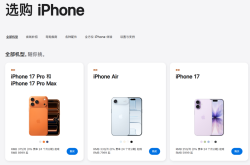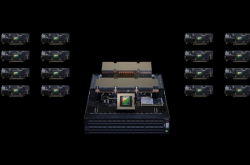This year's Double 11 is unusually quiet
![]() 11/11 2024
11/11 2024
![]() 504
504
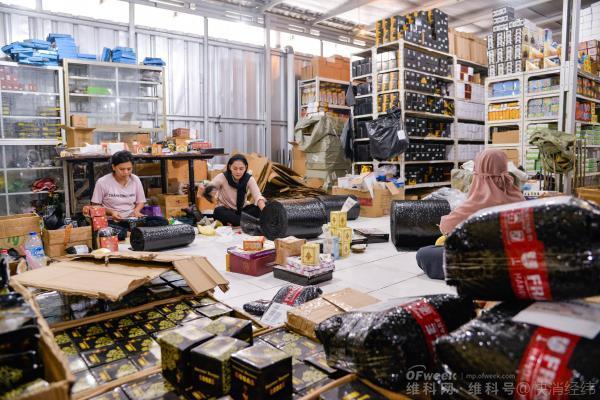
This year's Double 11 lacks the hustle and bustle of previous years. It's an unusual Double 11, a quiet one.
Written by Liu Shaode
Wang Qing sits in front of her computer, eyes fixed on the screen, fingers tapping gently on the keyboard. She is a freelance writer and a seasoned online shopping enthusiast.
At this time of year in the past, her shopping cart would be overflowing with all kinds of products, from cosmetics to household items, electronics to clothing and accessories. But this year, her cart is empty.
She remembers last year's Double 11, when she stayed up all night in front of her computer, just to grab those coveted items. Back then, she was excited, thrilled, as if the whole world was cheering for her. But this year, she finds herself losing interest in those products. She begins to question whether she really needs them. Those items that once captivated her heart now seem less important.
Wang Qing's transformation is not unique. This Double 11, many people are reflecting on their consumer behavior. On social media, discussions about "rational consumption" are increasing. People are starting to realize that excessive consumption not only strains their wallets but also burdens the environment. They are seeking more meaningful lifestyles rather than blindly following trends.
The Evolution of Double 11
Since its inception in 2009, Double 11 has undergone tremendous changes.
In 2009, Alibaba was cautious with the first Double 11, with only 27 brands participating and total transactions of 50 million yuan. Back then, Double 11 was straightforward: prices were halved, and consumers eagerly waited with their phones at midnight to grab deals. However, over time, Double 11 has stretched from one day to 20 days or more. The rules have become increasingly complex, with pre-sales, deposits, final payments, special red envelope days, maximum discounts, and cross-store shopping periods.
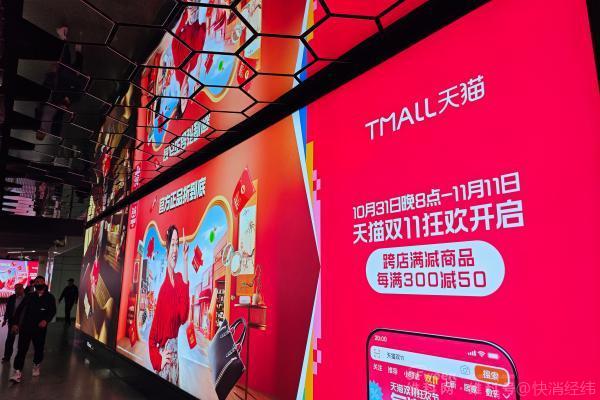
Consumers have shifted from enthusiastic participation to exhaustion with the complex rules. On the one hand, the myriad rules are bewildering, akin to solving Olympiad math problems. Activities like discounts, shopping gold inflation, and final payments deplete consumers' mental and physical energy. On the other hand, issues like delayed shipping of pre-ordered items and higher pre-sale prices than official sale prices have also drawn criticism.
Although platforms and merchants are constantly adjusting their strategies, it seems difficult to regain the initial allure. This year, some platforms have made changes, such as JD.com starting direct sales with available stock at 8 PM on October 23. While platforms like Tmall continue pre-sales, they have also introduced official discounts and instant rebates to simplify promotions. However, whether consumers will accept these changes remains to be seen. Double 11, in its constant evolution, seems to have lost its original purity and charm, leaving us to ponder its future direction.
Reasons for the Decline in Popularity
1. Rational Consumers
Consumers' weariness with Double 11's complex rules is increasingly evident. Each year, the myriad rules, such as discounts, shopping gold inflation, and final payments, are like solving math puzzles, exhausting consumers. The once straightforward 50% off promotions were more appealing, whereas now, complex discounts require significant time and effort to calculate, diminishing the joy of shopping.
Simultaneously, consumers have become numb to price wars. Double 11 price wars have become the norm, with frequent discounts each year diminishing participants' enthusiasm. Many consumers say they are already immune to low-price strategies, leaving only cumbersome rules and complex calculations.
Furthermore, in the current economic climate, consumers' reluctance to spend affects Double 11's popularity. Surveys show that 51% of Chinese consumers are reducing non-essential spending and focusing more on value when purchasing.
During large-scale promotions like Double 11, consumers prefer essential items over high-value goods.
2. Merchants' Dilemmas
Merchants face numerous challenges in fierce competition. Firstly, limited profit margins are a significant issue. Price wars are common, and merchants must not only bear high marketing costs during promotions but also return costs. Some brands also risk damaging their image by lowering prices during sales.
High marketing costs are another pain point for merchants. To capture consumers' attention during Double 11, merchants invest heavily in advertising. However, whether through live streaming or information flow ads, merchants often struggle to recoup these costs. Many merchants consider it a success if they break even during Double 11.
High return costs also put immense pressure on merchants. Increasing return rates not only increase costs but also inventory pressure, affecting store ratings and long-term profitability or even leading to losses. For example, a well-known small women's clothing store, "Zheng Baiwan's Petite Wardrobe," had to close due to a broken capital chain, a 70% refund rate, and various shipping insurance and cross-store discounts.
3. Changes in the Market Environment
The e-commerce industry's traffic bottleneck significantly impacts Double 11's popularity. As competition intensifies, major platforms face slowing user growth. Data shows that in Q1 2024, Alibaba's revenue growth was only 4%, while JD.com's growth hit a recent low due to market conditions. This not only forces platforms to intensify promotions to attract consumers but also dampens merchants' enthusiasm for Double 11 due to limited profit margins.
The rise of shopping festivals like 618 has also distracted consumer attention. Nowadays, with more shopping festivals, consumers have more choices. The growing scale and influence of 618 have made Double 11 no longer the sole shopping extravaganza for consumers.
Government subsidies releasing consumption in advance have also impacted Double 11. This year's Double 11 differs significantly as government subsidies combined with discounts on appliances and furniture offer consumers substantial benefits. These subsidies have pre-emptively released some consumer demand, reducing shopping needs during Double 11.
New Trends in Double 11
Major e-commerce platforms have adjusted their strategies for this year's Double 11 to cope with intensifying competition. Firstly, in terms of subsidies, Taobao Group has invested tens of billions of yuan to promote growth and reduce costs, offering 30 billion yuan in red envelopes and consumer vouchers. Tmall claims this will be the Double 11 with the most subsidies and red envelopes in history.
Meanwhile, Pinduoduo launched the "Super Double Bonus" campaign, focusing on subsidies for mobile phones, electronics, and home appliances. The first round exceeded expectations, with 16.4 million orders. Suning.com launched the "Thousands of Stores with Discounts, More Than 50% Off" campaign, building on government trade-in subsidies and collaborating with numerous home appliance brands. Overall discounts reached up to 50% off.
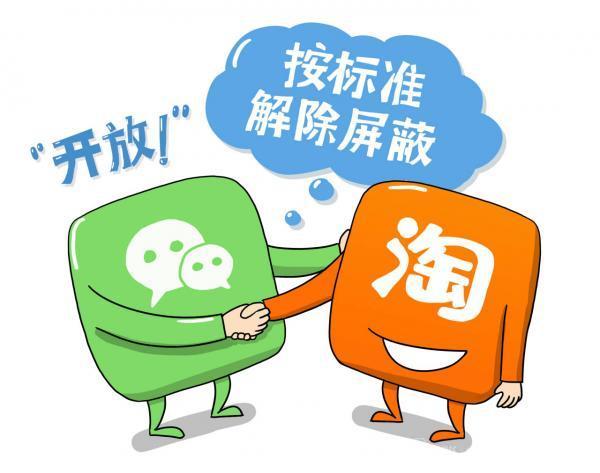
This Double 11 witnessed significant breakthroughs in payment and logistics system integration. WeChat Pay officially integrated with Taobao and Tmall, providing consumers with more payment options. Now, consumers can directly click Taobao links within WeChat to place and pay for orders. The WeChat app can access the Taobao homepage, and the Taobao app allows WeChat payments.
JD Logistics and Taobao Group have officially partnered, with JD Logistics fully integrating into Taobao and Tmall. Platform merchants can now directly choose JD Logistics for shipping. Additionally, JD integrates with Cainiao Express and Cainiao Stations, offering consumers more convenient logistics services. Cainiao has also integrated with JD's non-self-operated platforms, enabling interconnected logistics interfaces. Third-party merchants and users on JD's non-self-operated platforms can use Cainiao Express services like same-day, next-day, and 2-hour pickup.
Furthermore, e-commerce platforms are targeting the Hong Kong market. Taobao has announced an investment of 1 billion yuan to make Hong Kong a free shipping zone. Consumers can enjoy free shipping on items labeled "HK¥99 Free Shipping" on the Taobao platform, with enhanced cross-border return services. JD offers free shipping for self-operated orders over HK$299 (free shipping for up to 10KG), with no time or category restrictions, and a "Free Shipping for One Item" section. Pinduoduo also announced free shipping to Hong Kong, with the platform subsidizing consumers' shipping costs.
The Future of Double 11
1. Innovative Shopping Experiences
Double 11 can continue to innovate shopping experiences in the future. For example, utilizing Virtual Reality (VR) and Augmented Reality (AR) technology can enable consumers to more intuitively experience products. Consumers can "walk into" virtual stores via VR devices, view product details, and see how items match, enhancing the fun and interactivity of shopping. Simultaneously, combining Artificial Intelligence (AI) technology can provide personalized shopping recommendations based on consumers' purchase history, browsing behavior, and other data, improving shopping efficiency and satisfaction.
2. Enhanced Service Quality
In terms of service, Double 11 can further improve logistics speed and service quality. Currently, major e-commerce platforms have made significant progress in logistics, but during Double 11, the logistics pressure remains high, and some products may experience delayed shipping or slow delivery. In the future, optimizing logistics networks, increasing distribution personnel and equipment can enhance logistics efficiency, ensuring timely delivery. Additionally, strengthening after-sales services and providing more convenient return and exchange options can reassure consumers.
3. Strengthened Brand Building
For merchants, Double 11 is not just a promotional opportunity but a platform to showcase brand image and enhance brand value. Merchants can launch high-quality, distinctive products and provide excellent services to establish a good brand image. Simultaneously, strengthening brand promotion can raise brand awareness and reputation. For instance, using social media and live streaming to interact with consumers, showcasing brand culture and product features, can attract attention and purchases.
4. Building a Healthy Market Ecosystem
The future development of Double 11 requires building a healthy market ecosystem. E-commerce platforms, merchants, and consumers must work together to create a fair, honest, and orderly market environment. E-commerce platforms should strengthen supervision of merchants, combat false advertising and price fraud, and protect consumers' legitimate rights. Merchants should operate honestly, provide quality products and services, and avoid excessive promotions and price wars. Consumers should shop rationally, based on actual needs and financial capabilities, avoiding blind following and impulsive spending. Only through collective effort can Double 11 continue to develop healthily, offering consumers a better shopping experience.
Just a few days ago, Wang Qing received her only purchase during this year's Double 11 - a book on environmental protection. Unlike previous years, she didn't receive a pile of packages, but she felt unusually calm and satisfied. She began reading the book, learning how to practice environmental protection in daily life. She discovered that this kind of gain is far more meaningful than material acquisitions.
She started sharing her reading insights on social media and how she practices environmental protection in her life. Her actions influenced those around her, and more people began paying attention to environmental protection and reflecting on their consumer behavior. This Double 11, while quiet, carried deeper meaning.
Over time, people's attitudes towards Double 11 are gradually changing. They no longer view it as a shopping frenzy but an opportunity for reflection and change. They are pursuing higher-quality lives rather than more material possessions. This quiet Double 11 heralds a more rational and environmentally friendly future.







